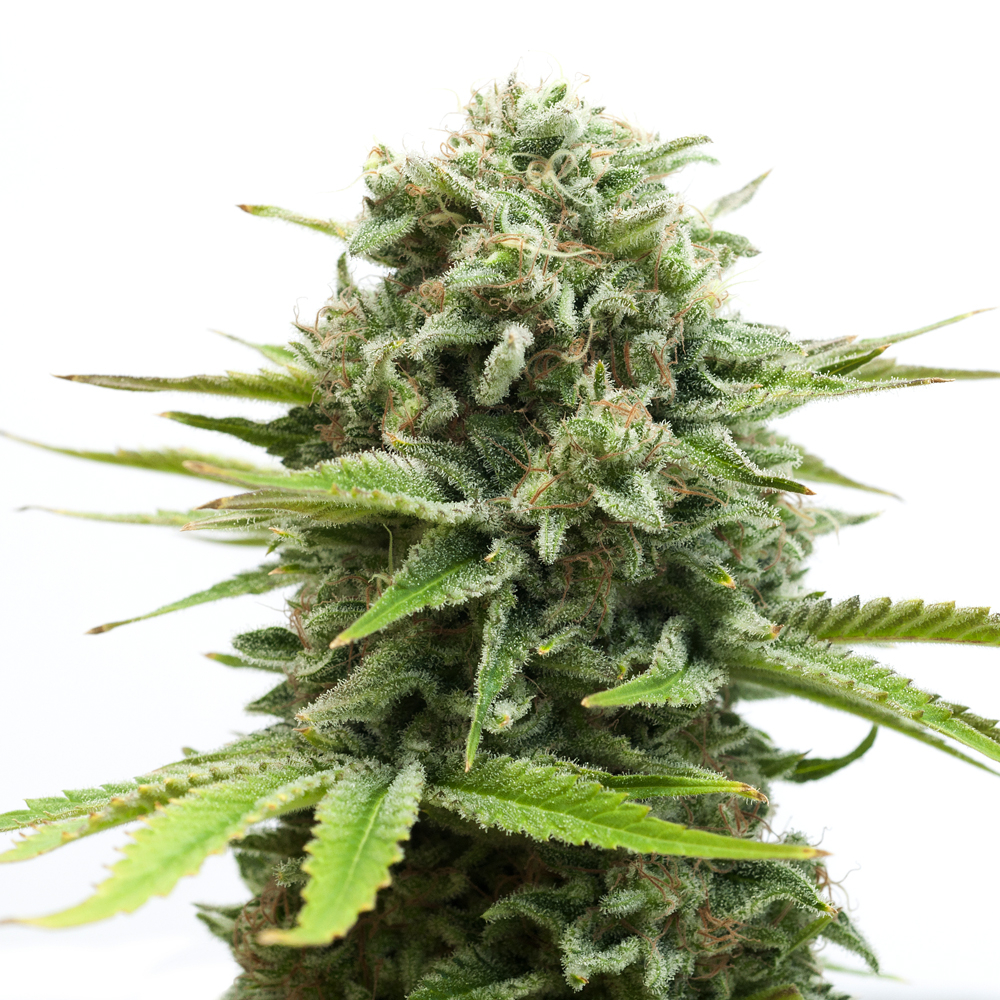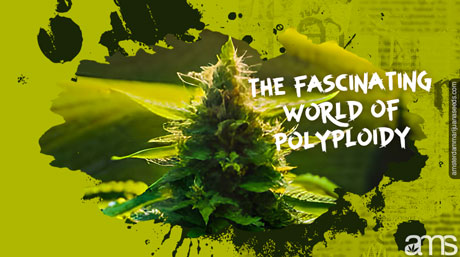Table of Contents
- What is polyploid cannabis?
- What are the benefits of polyploid cannabis?
- Does polyploid cannabis have any drawbacks?
- Keep your eyes peeled for polyploid pot!
Weed Polyploidy – Introduction to The Polyploid Pot Revolution
Unless you’re interested in genetics, chances are you’ve never run across the word “polyploidy.” However, connoisseurs and cultivators may have seen this ultra-scientific term popping up on their favorite weed websites or forums. There are even a few big-name universities that are now studying the applications of polyploidy on cannabis strains.
According to some cannabis fans, polyploidy may revolutionize the legal weed market. This natural form of genetic modification could drastically affect cannabis supply chain issues. So, what does polyploid weed mean, and why are people getting so excited about it?

What is polyploid cannabis?
To understand polyploid cannabis, we need to review the basics of DNA. Short for “deoxyribonucleic acid,” DNA is found in chromosomes and contains essential genetic material in all living organisms. Interestingly, the structure of DNA in cannabis and humans is somewhat similar. Both humans and weeds are “diploid,” which means there are two pairs of chromosomes in every set.
If a plant has more than two pairs of chromosomes in each set, it’s considered a “polyploid” organism. Interestingly, there are many other plants, that naturally express polyploid traits. For example, durum wheat has four chromosomes per set. In some rare instances, even cannabis strains could have a polyploid genetic structure.
While polyploid cannabis can occur in the wild, botanists are curious if humans could coax weed plants into this state. For instance, some scientists have begun exposing cannabis to the compound colchicine to interfere with standard chromosome division. This simple strategy could increase the odds a cannabis strain will express a polyploid genetic code.
FYI: If you need a refresher on basic cannabis biology, please be sure to read our previous “Marijuana Plant Anatomy” guide.
What are the benefits of polyploid cannabis?
Since polyploid cannabis has extra genetic info, it tends to produce higher yields versus its diploid counterparts. Many researchers also believe polyploid cannabis has a greater resistance to common diseases and a higher concentration of cannabinoids.
Understandably, all three of these traits are highly desirable in commercial cannabis cultivation. Cannabis farmers could use polyploid seeds to potentially double or triple their yearly harvests. The increased cannabinoid potency may help increase the supply of THC and CBD extracts for recreational and medical cannabis users. Polyploid cannabis could potentially increase the supply of high-quality cannabis products, thus easing price pressure for recreational consumers and MMJ patients.

Also, polyploid seeds may open a new lucrative business for dispensaries, online weed shops, and seed banks. As more home growers learn about polyploid pot’s high yields, exceptional cannabinoid count, and natural resistance to mold, there will likely be an extreme demand for these seeds.
It’s also possible that polyploid cannabis could give growers and researchers easier access to rare secondary cannabinoids. By doubling or tripling a cannabis plant’s average harvest, it should be easier to extract high concentrations of cannabinoids like CBG, CBN, or CBC from select cannabis strains. This could give consumers access to a wider array of cannabis products with unique use cases. It should also help universities test these secondary cannabinoids to better understand how they interact with the human endocannabinoid system.

Does polyploid cannabis have any drawbacks?
On paper, polyploid cannabis may sound like a dream come true. However, it’s essential to recognize that research into polyploid weed is preliminary. There are still many unaddressed questions and concerns that people have about using this procedure.
For instance, some cannabis purists fear the popularity of polyploid cannabis may cause cultivators to neglect to preserve the cannabis plant’s genetic legacy. As more businesses switch to polyploid cannabis to keep up with the competition, it may wipe away many of weed ancestral Indica, Sativa, and Ruderalis strains. Nobody’s quite sure how an increase in polyploid cannabis will influence weed’s genetic future.
There are also some concerns that polyploid cannabis is a form of genetic modification. Although polyploidy is present in nature, humans are interfering with weed’s natural process when introducing this genetic change to their strains. Some consumers fear companies will use unsafe practices in an effort, to create the “biggest” and “best” polypoid strains.

Keep your eyes peeled for polyploid-pot!
The research into weed polyploidy is still in its early stages, but this field has attracted a ton of interest from the cannabis community. As cannabis becomes more accessible to farmers and researchers, it may only take a few years before polyploid products start hitting the cannabis market.
While there are a lot of questions about how polyploid pot differs from “standard” cannabis, it’s definitely, a field that’s worth watching. Anyone interested in cannabis cultivation or the legal weed market should keep a close eye on how polyploid weed “evolves.”
















